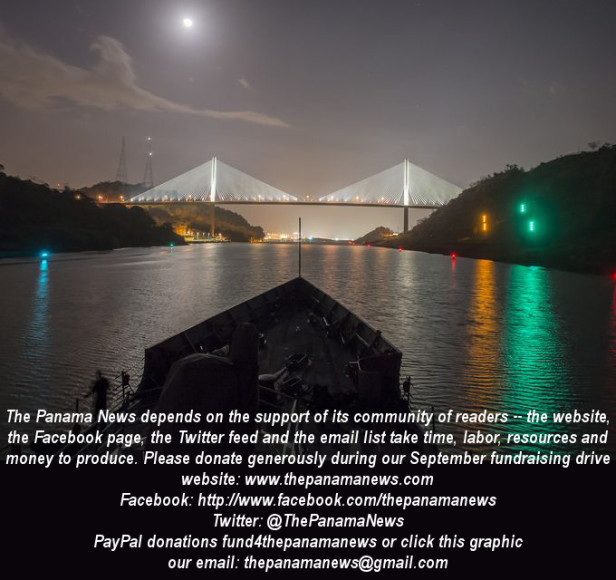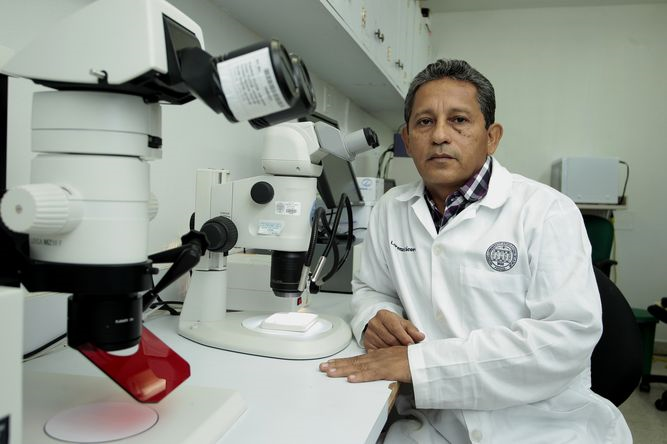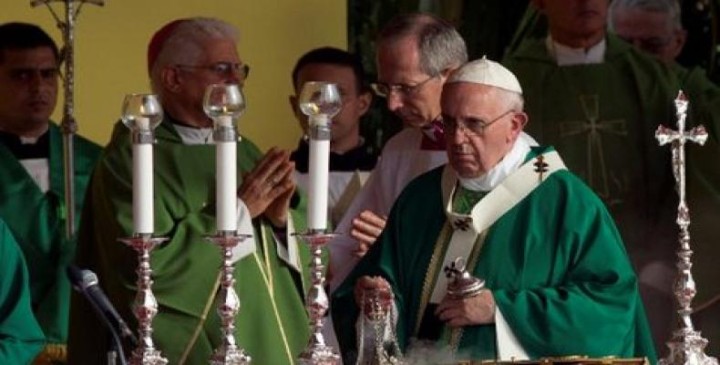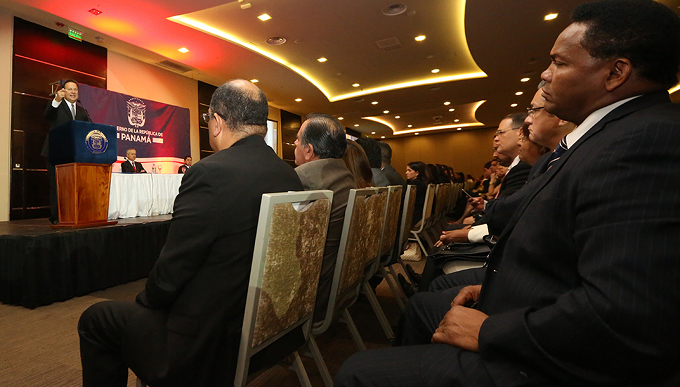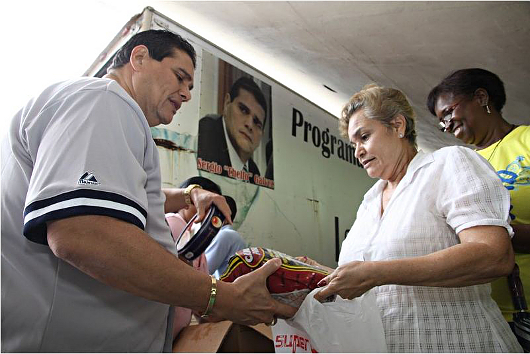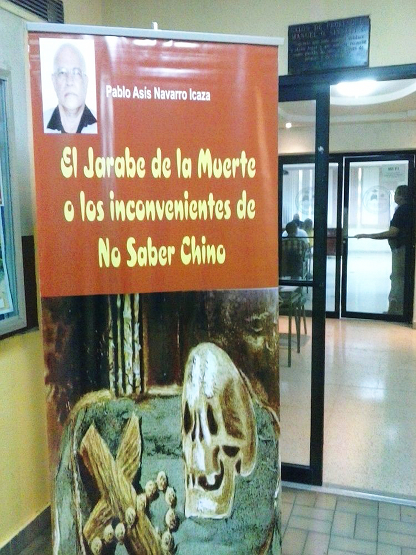 El jarabe de la muerte y las víctimas del capitalismo neoliberal
El jarabe de la muerte y las víctimas del capitalismo neoliberal
por Olmedo Beluche
El amigo y colega Pablo Asís Navarro Icaza ha publicado recientemente su última novela: “El Jarabe de la Muerte o los inconvenientes de no saber chino”, en la que aborda de una manera amena el drama vivido por cientos, tal vez miles, de familias panameñas envenenadas por un “jarabe para la tos sin azúcar”, elaborado con refrigerante industrial. Como un Sherlock Holmes criollo, el periodista Luis Quintero, principal personaje de la obra y personificación del propio Pablo Navarro, va indagando y reconstruyendo la verdad de esta tragedia nacional.
Como explicara Pablo Navarro en la presentación de la novela, en el Salón de Profesores de Humanidades de la Universidad de Panamá, el impacto emocional que le causara el destape de este absurdo asesinato masivo, lo llevó a realizar una investigación exhaustiva, como buen sociólogo, que incluyó entrevistarse con muchas de las víctimas y sus familias, trabajo del que surgió esta versión novelística de la investigación. Así que, a los futuros lectores, a quienes recomiendo la novela de Pablo Asís, sepan que aunque el género es ficción, lo que se describe es cruda realidad.
¿Cómo es posible que una licitación para la compra de glicerina para la elaboración de medicinas del laboratorio de la Caja de Seguro Social, que pasó por tres empresas y tres países, acabe transmutada en “Dietileneglicol”, refrigerante de automóviles y veneno para las personas? La respuesta más simple e individualista es: la avaricia, combinada con ineptitud.
Pero esa interpretación, que focaliza en un par de individuos la responsabilidad por tamaño “genocidio” (como señala uno de los personajes), satisface a las autoridades del sistema, pero no a la sociedad, menos a las víctimas y muchos menos a quienes deseamos que nunca se vuelva a repetir. Porque en pocos años, vemos multiplicarse los crímenes masivos en la salud pública panameña que pudieron evitarse, en los casos de: dietileneglicol, poco después en las víctimas de la bacteria KPC y en los niños envenenados con heparina.
Es la avaricia, pero no la individual, aunque individuos concretos son los responsables ante la ley, si es que esta funciona alguna vez. Es la avaricia sistémica del capitalismo decadente en su fase neoliberal para el cual sólo importa el mercado y el lucro privado, a los que debe supeditarse incluso la vida humana. Es la aplicación de 30 a 40 años de políticas neoliberales que promueven el “libre comercio”, pero no el libre tránsito de personas. Esas políticas económicas, para facilitar la ganancia privada, han ido eliminando los controles aduaneros, fitosanitarios y de salud.
¿Cómo un producto que pasó por empresas de Panamá, España y China nunca nadie cotejó que lo dicho en la factura coincidiera con el contenido de los bidones? ¿Cómo es posible que la Caja de Seguro Social panameña no verificó la veracidad del producto que recibía en sus bodegas? ¿Por qué no se enviaron muestras al Instituto Especializado de Análisis antes de elaborarse el jarabe? La única respuesta a tanta negligencia es el neoliberalismo, que ha removido todas las trabas posibles al comercio.
La otra pregunta que la novela plantea muy bien: ¿Cómo es posible que un jarabe cuya distribución pertenecía exclusivamente a la Caja de Seguro Social envenenó personas que compraron en farmacias privadas? ¿Qué mafia a lo interno de la institución lucraba robándose los medicamentos y revendiéndolos en qué farmacias cómplices? La única respuesta posible e la corrupción generalizada que corroe al sistema capitalista panameño, de la que participan no solo los grandes funcionarios al servicio de los grandes capitalistas, sino también funcionarios de mediano y bajo rango.
Corrupción también es la manipulación y el ocultamiento de la verdad que practicaron tanto los directivos de la CSS, como del Ministro de Salud y del gobierno de Martín Torrijos, desde que se empezó a conocer la magnitud de las muertes esparcidas por todo el país. La novela de Pablo Navarro describe cómo se cambió el diagnóstico de muchas defunciones para atribuirlos a otras causas y reducir el número de víctimas admitidas.
También describe la novela cómo la CSS le pidió a las víctimas que devolvieran los frascos de jarabe dejándolas sin evidencia de haber sido envenenadas. Incluso en casos de defunciones ocurridas en los hospitales se ha denegado la solicitud de informar los tratamientos que se suministraron a los pacientes.
Incluso la novela de Pablo Navarro nos lleva a analizar la responsabilidad del Ministerio Público que, más de un lustro después, no aclara dudas como las siguientes: si se elaboraron hasta 260 mil frascos de jarabe y se admite haber distribuido 60 mil frascos, ¿Cuántos se recuperaron de verdad? ¿Cuántos siguen por ahí? ¿Cómo es posible que solo se admiten 300 afectados con tantos jarabe suelto por las calles, si con dos o tres cucharadas basta para matar a una persona? La única respuesta posible: más corrupción neoliberal.
La novela, que maneja muy bien la ironía, nos advierte desde el título una realidad absurda: en China, un irresponsable sastre, Wang Guiping, siguiendo la consigna “socialista” de “enriqueceos”, descubrió que era buen negocio suplantar la glicerina por el refrigerante industrial, pues le permitía ganar unos yuanes o dólares más. El hombre alega que lo probó y que vio que no hacía daño, por lo que procedió a venderlo, envenenando a decenas de personas en su país. Por lo cual fue juzgado y ejecutado.
Pero, aquí la ironía, en el caso del veneno enviado a Panamá “no hay delito”, pues la etiqueta exterior de los bidones tenía claramente las letras “T.D.”, cuyo significado nadie entendía por acá, pero que en chino significan “tidai”, o sea, “sustituto” (de la glicerina). Así estamos: avaricia capitalista, enriquecimiento rápido, libre comercio, eliminación de conroles, envenenamiento masivo, denegación de justicia, corrupción generalizada, en fin, el funcionamiento “normal” de este capitalismo neoliberal que nos acerca a la barbarie.
Finalizamos recomendando al público panameño leer “El Jarabe de la Muerte o los inconvenientes de no saber chino”, de Pablo Navarro, que nos hará reflexionar sobre la época trágica que nos ha tocado vivir en este Panamá y, ojalá, la novela nos impulse a la acción política, la única capaz de barrer esta basura genocida que gobierna al mundo.
~ ~ ~
Estos anuncios son interactivos. Toque en ellos para seguir a las páginas de web







